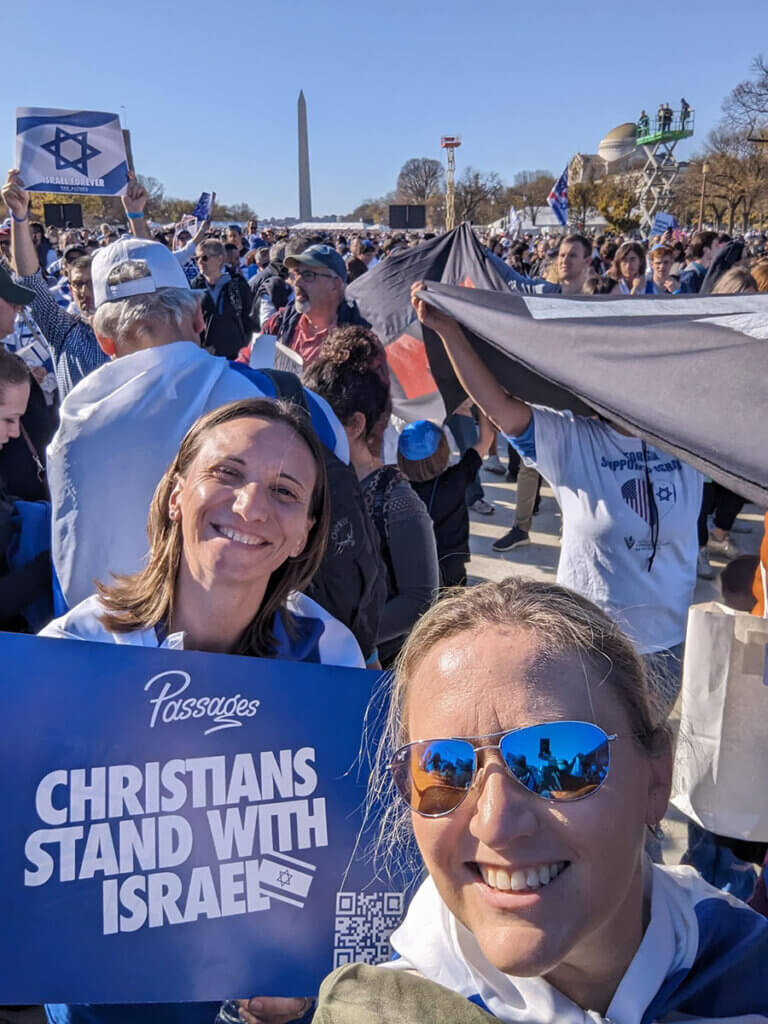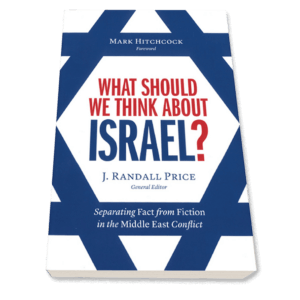How My Trip to Poland Revealed the Reality of the Holocaust
In May, our Friends of Israel Encounter team of 16 young adults visited Poland to learn about the Holocaust. What an experience it was! The combination of volunteerism, Holocaust education, and acts of solidarity we took part in created an unforgettable time in Poland. God blessed our trip with unity, safety, fruitful ministry, and wonderful fellowship.
Making History Tangible
In the months preceding the trip, I watched movies, read firsthand accounts, listened to survivor interviews, and toured Holocaust museums to prepare myself for what I would see. I wept over the pain the Jewish people suffered and longed for them to know the love of God. But then, actually walking on the very soil where the Shoah (Holocaust) took place was unlike anything I have ever done in my life.
The reality of every painful detail of the Holocaust was laid bare before our eyes at places like Majdanek, one of the death camps during World War II. Because the camp was almost immediately turned into a museum in 1944, many of the buildings remain intact, providing guests a working concept of what the camp was like. During our tour, we walked along the barbed-wire fence. As we passed many buildings, I could not figure out where we were headed. Then I saw it. My breath caught in my throat. I saw the chimney of the gas chamber where many Jewish people had been killed.
The stories I read became personal in that they were no longer distant history; they became tangible.
I will always consider it a profound privilege to have stood in these places. The stories I read became personal in that they were no longer distant history; they became tangible. I pray God will use me always to be a true friend to the Jewish people.
In spite of the weight I felt standing in these locations, this glorious truth remains: God will always keep His promises. He has a continued plan for Israel and the Jewish people past, present, and future.
Standing in the site of the Auschwitz prison camp with thousands of Jewish people was an incredible honor. There we heard 10,000 Jewish voices sing “Hatikvah,” a resounding shout testifying to God’s faithfulness in preserving His Chosen People whom He loves so much. In Leviticus 26:44, God said of Israel, “Yet for all that, when they are in the land of their enemies, I will not cast them away, nor shall I abhor them, to utterly destroy them and break My covenant with them; for I am the Lᴏʀᴅ their God.” He is faithful and always keeps His promises!
Avoiding Past Atrocities
Walking where the ghettos once were, a particular thought struck me. The chaos of World War II hit cities of ordinary people like me. The rhythmic patterns of life, school, and work were shattered and transformed into a nightmare. The generation of these atrocities is not far removed from us—any generation is capable of committing such grievous acts.
It is not education but, rather, a spiritual change that prevents antisemitism.
It is not education but, rather, a spiritual change that prevents antisemitism. Nazi Germany was composed of highly educated people, and its grotesque atrocities were systematically organized. Intelligence does not prevent this behavior. Intelligence is merely a tool to carry out the implications of one’s worldview. We ought to be careful what we believe and think. Proverbs 4:23 teaches us, “Watch over your heart with all diligence, for from it flow the springs of life” (NASB).
We need God to make us clean, and we need His Word to show us the truth. In these times of rising antisemitism, we all must know God’s Word and share it with others.
Sharing God’s Love
Hearing from a rabbi at the Krakow Jewish Community Center was a special blessing because he shared how the Jewish communities are doing in light of increased antisemitism and his appreciation for how we demonstrated Christian love for the Jewish community.
On the day of March of the Living, an educational program held at the site of the Auschwitz extermination camp that teaches Jewish high school students the realities of the Holocaust, our team joined a delegation of Jewish young adults from North America. They were pleasantly surprised to hear that we were Christians who loved them. During the trip, I heard many of them share wonderful words of appreciation:
“It’s so nice to have Christians who are genuine friends!”
“We need more people like you!”
“I know you really care about us!”
“None of you guys are Jewish? Wow, thank you for coming!”
We pray that, through our words and actions, the Lord will use us to serve Him in our communities as lights to those around us.
I would be terribly remiss if I did not share how amazing it was to be with the Polish Friends of Israel staff. Spending time with them immediately felt like gathering with family. I thoroughly enjoyed hearing how God is using them in Poland and beyond. It was a joy to assist them with ministry projects that will be a blessing to the Jewish people. God is at work in Europe and is using believers to bring biblical hope to a hurting world.
I am so grateful to God for allowing me to be a part of this trip. It will forever be special to me. It opened my eyes to history and to what ministry looks like around the world and encouraged me to continue following the Lord wherever He leads me. God is so good! May He receive all the glory!
Photo Credit: Alyssa Ruddell

